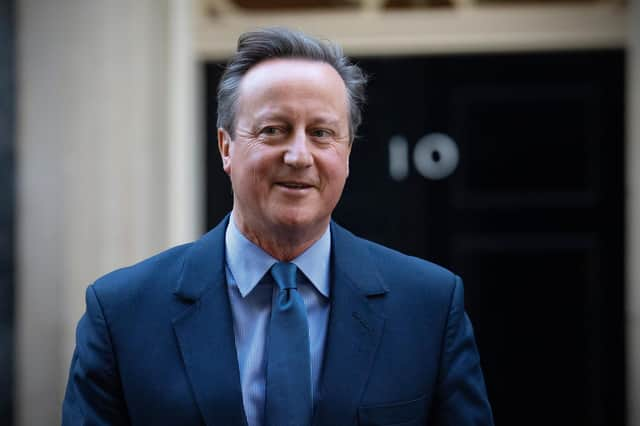Northern Lights: Yesterday’s men don’t have the answers for today, and not tomorrow


It must have been his credentials in international affairs that set him a cut above every sitting Conservative MP—those traditionally eligible for the promotion—that led him to take the role. It would be interesting to know whether Rishi was sold on his Prime Ministerial achievements, like overseeing the Brexit referendum, or if it was his post-parliamentary lobbying career—trying to funnel billions for China, or going camping with Saudi Crown Prince Mohammed bin Salman on behalf of Greensill Capital.
Our country faces multiple intersecting crises: energy costs reaching record heights, the climate emergency, an economy in freefall. Desperate times may, as the adage goes, call for desperate measures, but I am far from convinced that we have become this desperate. Rishi Sunak may have finally scraped the last from the bottom of the barrel, but he could have had the decency to resign and call a General Election rather than try to sustain this chaos for another few months.
Advertisement
Hide AdAdvertisement
Hide AdDavid Cameron wasn’t simply the pig-headed Prime Minister who tore up his party’s unity with the referendum. Lest we forgot, he had a hand in birthing the cost-of-living crisis. In 2013 he “cut all the green crap”. This terminated policies—ending onshore wind projects, solar panel subsidies and energy-efficiency schemes—that had been pioneered by the last Labour Government through its then world-leading Climate Change Act (2008). Analysists have found that those cuts have added £2.5bn to UK energy bills, making households hundreds of pounds worse off every year.
When speaking of yesterday’s men, we cannot forget to mention Ed Davey. When Cameron “cut the green crap”, it was he—then Energy Secretary in the coalition, now Lib Dem Leader—who wielded the axe. Those who think they deserve to lead our country should remember that we’re still living with the consequences of their actions.
We seem to be watching a strange rehash of the early 2010s; as well as Ed Davey and David Cameron returning to frontline politicians, Jeremy Hunt has taken again to relitigating the Coalition Government’s war against the most marginalised. Their Government then led us to being the first nation in the world to be investigated by the United Nations for violating disabled people’s human rights. It’s come out recently that ministers have drawn up plans to force people with physical and mental health conditions to find work, and withhold benefit claimants’ medicine if they can’t work.
We now have a Chancellor that thinks first how to punish, before considering how to support. His punitive approach will by design to trap people into a cycle of low pay, insecurity and poverty. People with disabilities, impairments, or chronic illnesses—the people the welfare system was set up to support—will force people into poverty or worse. It's no surprise that the UK is on track for a record fall in living standards when this is the barbarism with which we are ruled. It’s certainly no surprise that with the Tories our economy continues to stagnate.
Advertisement
Hide AdAdvertisement
Hide AdOur most pressing challenge is to address the cost-of-living crisis, and lower household bills to a reasonable level—and there was sadly nothing in the recent Conservative budget to do that. But politicians of all stripes must also tackle the climate crisis as a matter of a priority. These issues can and must be one.
A recent article in Sheffield-based Now Then magazine highlighted research showing how the cost-of-living crisis is made worse by climate breakdown—that as climate change worsens, the cost-of-living crisis intensifies. It also showed, however, that the reverse is true: that accelerating net-zero would make households thousands of pounds better off, with the average house saving between £400 and £6,000 cumulatively, by investing in decarbonisation.
The Labour Party has set out a radical ambition to cut energy bills for good, looking to create GB Energy—a new, publicly-owned clean energy company—to harness renewables, and to retrofit 19 million homes to end fuel poverty for good. These are straightforward and sensible policies that will cut emissions, by reducing the amount of energy households use, and supply them with cheaper, greener energy.
It's no surprise that our current Leaders—who cut their teeth by cutting our public services to the bone—have no answers for the challenges we currently face. The solution to our economic and environmental crises and rising levels of inflation is to invest in communities, create jobs, and tackle problems head on.
Yesterday’s men don’t have the answers for today, and certainly not tomorrow.